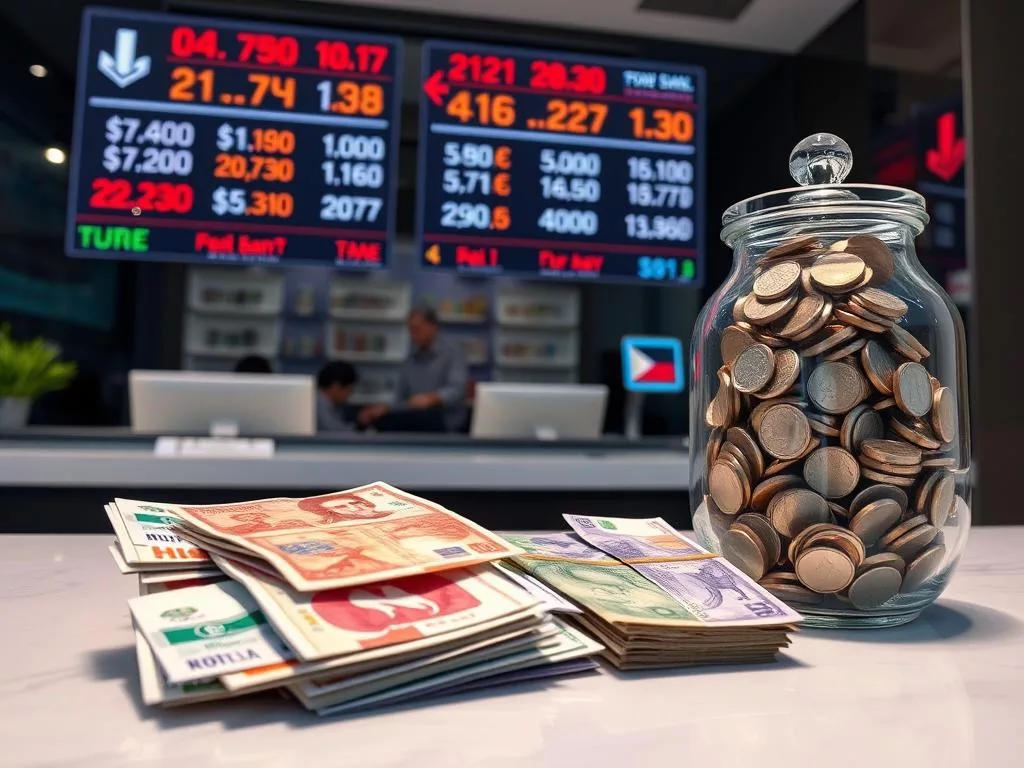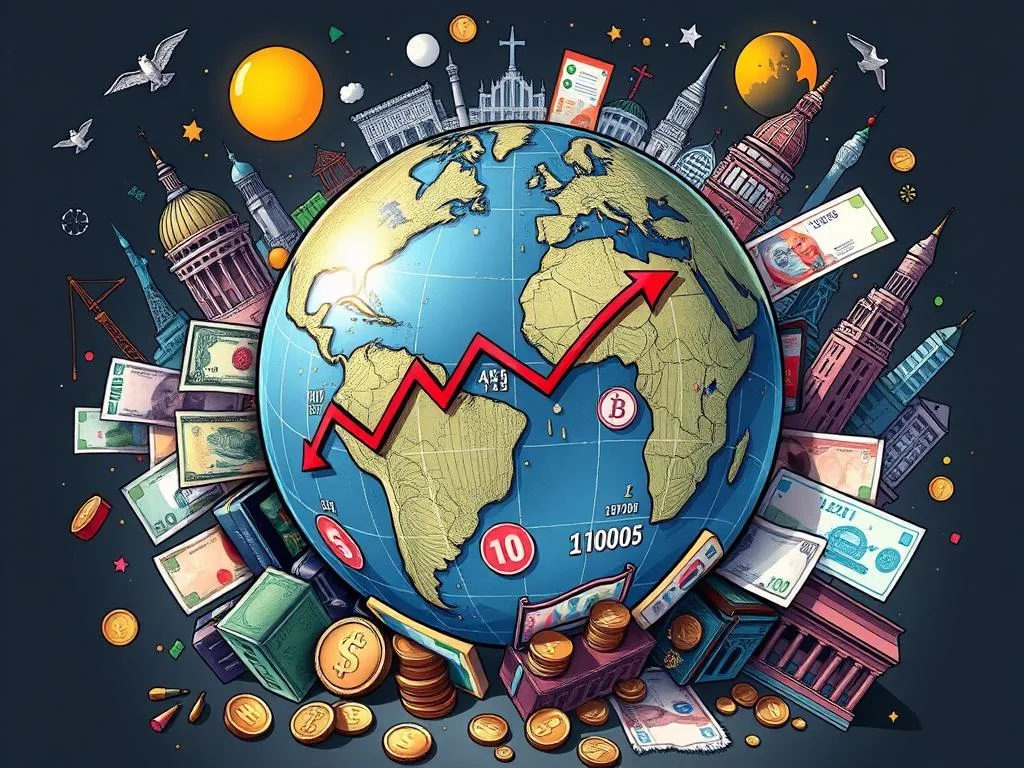When you’re dealing with big money overseas, knowing how to exchange currencies is key. This guide will give you all the details you need for
Start by converting your money at banks before you leave. Banks like Bank of America and Citibank give good rates and charge less than other places. Stay away from airport kiosks and tourist spots because they charge too much.
Using banks and credit unions usually gets you a better deal. Also, Wise offers low-fee currency conversion in over 40 currencies. This means you can get the best rate for your money.
Think about when you exchange your money and the fees involved. Knowing when rates change can help a lot. Banks and fintech like Wise and Revolut offer accounts for different currencies. This makes handling money abroad easier.
In short, being ready and using the right services can make exchanging money easier. Choose banks with good rates and clear fees. Use fintech for your big transactions abroad. This way, you can make the most of your money when you’re overseas.
Factors to Consider When Exchanging Large Amounts of Currency
When you’re dealing with a lot of foreign currency, it’s important to think about a few key things. Looking for the best exchange rates and trying to keep costs down can help you save money. It also helps you make smart choices.

Choosing between banks and currency brokers is a big decision. Banks are safe and easy to use, but they often charge more. Currency brokers, on the other hand, usually offer better rates and lower fees. This can save you a lot of money, sometimes up to 50% less than what banks charge.
When you exchange money, the timing matters too. Currency brokers can help you find the best rates and give advice on when to exchange. This way, you can secure a good rate for up to a year, protecting you from big changes in the market.
- Currency exchange providers often charge a percentage-based fee on the total amount exchanged, which can become costly when exchanging large amounts of money.
- Foreign transaction fees for credit or debit cards abroad can range from 1% to 3% of the transaction amount.
- Airport kiosks are known to inflate exchange rates by as much as 10% compared to local banks or ATMs.
Using online platforms to compare rates can also be very helpful. These tools let you see who offers the best deals. It’s also key to know about all the costs involved, like extra fees for converting currencies. These can add up and affect how much you get from your exchange.
For big transactions, you want things to be clear and fast. Specialized brokers usually make sure your money moves quickly and you know exactly what you’re paying. For more tips, check out the guides on avoiding common mistakes and using the best strategies.
The table below shows some common costs for different ways to exchange currency:
| Method | Average Fees | Rate Competitiveness |
|---|---|---|
| Traditional Banks | 1-3% | Moderate |
| Currency Brokers | 0.5% or less | High |
| Airport Kiosks | 10% above market rate | Low |
| ATMs Abroad | Varies by Network | Varies |
Using the right approach and understanding your options can greatly affect your finances. By doing this, you can get better rates and save money. It also opens up the benefits of working with international currency brokers in today’s world.
Guide to Currency Exchange Comparison for Large Transactions Abroad
Exchanging currency for big transactions abroad needs careful planning. It’s important to use good currency comparison tools and know about currency exchange rates. By choosing the right strategies, you can save a lot on exchange fees, making your money go further.

The market rate, or ‘interbank’ rate, is the official rate used by big banks. It shows the true value of currency pairs. Services like Wise and OFX offer rates close to this, helping you save money.
Wise, for example, gives you mid-market rates with low fees. This makes it a top choice for travelers and investors. But, it’s key to compare different options to avoid high fees. Rates change often, so it’s important to keep an eye on them.
Now, let’s compare banks, kiosks, and online providers:
| Provider | Rate Type | Margin/Mark-up | Fees |
|---|---|---|---|
| Local Banks | Customer Rate | High | Varies |
| Currency Exchange Kiosks | Customer Rate | Very High | Consistently High |
| Online Providers (Wise, OFX) | Mid-market/Customer Rate | Low to Medium | Low |
OFX, for instance, offers rates that are close to the market rate. They keep fees low, which is great for big transactions. Even a small difference in rates can save you a lot of money.
OFX also gives you tools to track market conditions. They offer currency outlook news, rate alerts, and calculators. You can also check Wise’s blog for tips on exchanging currency. These tools help you make smart choices and avoid high fees.
In summary, knowing about currency exchange rates and using comparison tools are key to saving on fees. Services like Wise and OFX offer big advantages for your money. Whether you’re traveling, investing, or doing business abroad, these tips can help you get the best deal on currency exchange.
Best Practices for Large Currency Transfers
When you handle big currency transfers, keeping things safe and affordable is key. Picking a trusted and regulated currency broker is a must. Make sure they are FCA-registered to protect your money. Check out the secure large bank transfers guide for more info.
Exchange rates can change a lot, so timing your transfer right is important. Money transfer experts offer tools like forward contracts to help. By watching rate charts and setting alerts, you can save a lot on big deals.
It’s important to know all the costs involved in currency transfers. Fees like bank charges and exchange margins should be clear. Companies like Xe show you all costs upfront, helping you budget better. They also offer better rates and limits than banks, which is great for big deals.
Having the right documents is essential for big international transfers. They help prove you have the money and follow the rules. Keeping detailed records of your transactions is a good idea. Talking to a tax expert about big transfers can also help you stay legal. Following these tips makes your transfer safe, smooth, and affordable.

